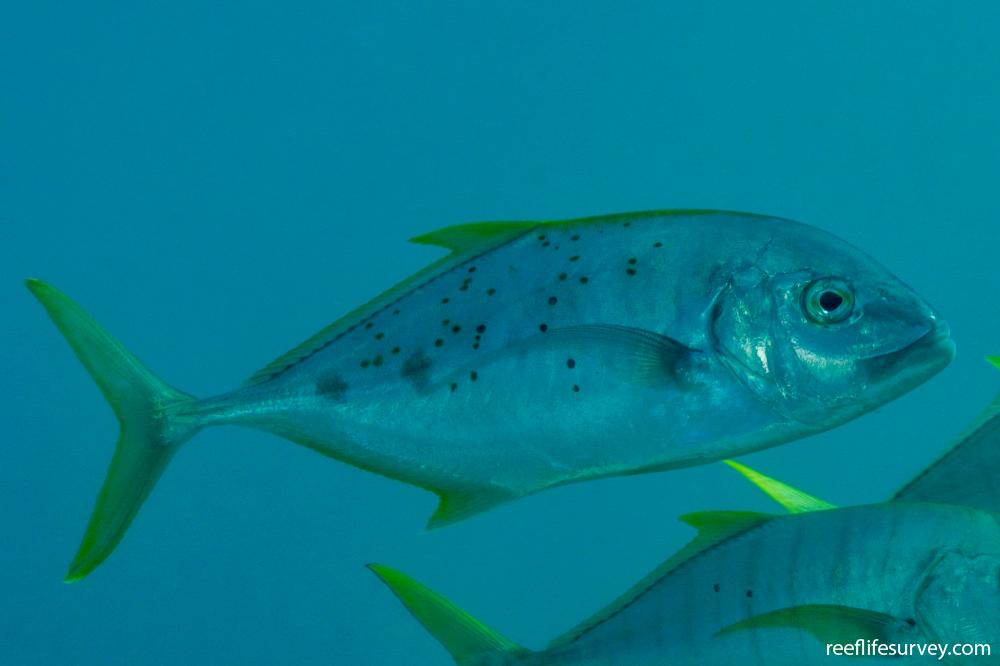Carangoides fulvoguttatus
Turrum | Gold Spotted Trevally | Yellow Spotted TrevallySimilar Species
Same Genus
Distribution
Tropical Indo-Pacific
Description
Flat initial head profile from snout, and an elongate body with numerous dark orange spots and blotches on side that are concentrated within five slightly darker bars, and often (but not always) yellow fins and tail. Deeper bodied than C. gymnostethus (Bludger Trevally), lacks blue fins of C. orthogrammus (Thicklip Trevally), and lacks large rubbery mouth and narrow vertical bands of Gnathanodon speciosus (Golden Trevally).
Information
Max Size: 120 cm
Sea Temperature Range: 21-31.3°C
Depth: 2-100m
Habitat Generalization Index: 8.98
Also referred to as the SGI (Species Generalisation Index), this describes the habitat niche breadth of the species. Species with values less than 15 are found in a relatively narrow range of reef habitat types (specialists), while those over 25 may be found on most hard substrates within their range (generalists). Learn more here.
Conservation and Rarity
IUCN Status: Not Evaluated
Occurrence: Frequent (11.9% of sites)
Occurrence describes how often the species is found on surveys within its distribution. It is calculated as the % of reef sites surveyed by RLS divers across all the ecoregions in which the species has been observed
Abundance: Several (7 per transect)
Abundance is calculated as the average number of individuals recorded per RLS transect, where present.
Edit by: RD Stuart-Smith, GJ Edgar, AJ Green, IV Shaw. 2015. Tropical Marine Fishes of Australia. Reed New Holland














